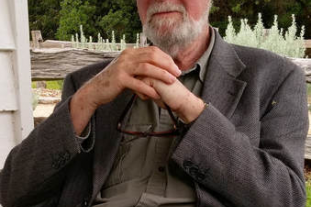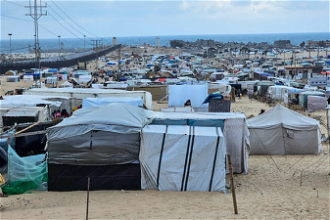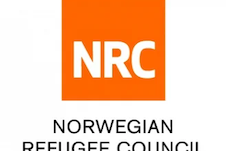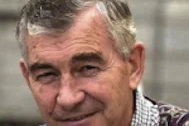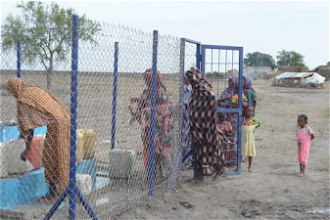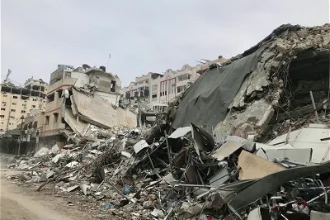Reflections of a diaspora Gazan, in a time of genocide
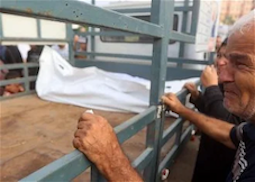
Palestinian Centre for Human Rights
Source: Palestinian Centre for Human Rights
The haunting images of Palestinian babies, children, women, and men from Gaza have become deeply etched into our minds and souls. They are repulsive to us as emotional beings, shaking us to the core of our existence and leaving us in tatters. These visuals starkly portray the depths of human cruelty, our fragile hope, unlikely sense of recovery, enduring sense of hopelessness, and imminent fear of collective amnesia. These are the times of genocide.
To set the record straight, genocide has been underway in Gaza for the last 16 years. For years, Israel counted the number of calories entering the Gaza Strip to "put the Palestinians on a diet, but not to make them die of hunger," as one Israeli official put it. Fast forward to 2023, and dying of hunger is a genuine concern for Palestinians in Gaza. Another Israeli official announced, "I have ordered a complete siege on the Gaza Strip. There will be no electricity, no food, no fuel, everything is closed. We are fighting human animals and we are acting accordingly." Is there a difference between a siege and a complete siege? Are there different kinds of sieges to subjugate and starve people? Are there different types of "cages" for the more than 2.3 million people of Gaza residing in almost one percent of historic Palestine? Perhaps the only glaring difference in these crimes of genocide is their speed, one in slow motion and the other fast. "The death count is unfathomable."
While the world counts our massacred, Palestinians don't count. Keeping track of the numbers will not give justice to those who are murdered every day without compunction or remorse. They, too, have dreams, aspirations, families, pets, toys, neighbours, friends, and everything anyone with a beating heart holds dear. Their deaths are not calculations forgotten with the next round of violence; they are not numbers that will be erased from Palestinian collective consciousness; each death is a poignant reminder that what is happening in Palestine today, what has been happening in Palestine for 75 years, is genocide, fast or slow. Each life that is cut short is a constant reminder that justice has no price tag, that colonization is a failed experiment of humanity, and that the loss of one life is equivalent to the loss of all humankind.
I am a grandson of a Palestinian farmer who lived in Asdod. My ancestors lived in Asdod for generations upon generations. Then, in 1948, more than 750,000 Palestinians were forcefully expelled from their land. Some, like my grandparents, took refuge in Gaza, where I was born. I was born as a refugee in my homeland. I was born stateless in my own country - a burden I've carried since.
During our formative years, we, Palestinian children of Gaza, witnessed repeated Israeli genocides. Mohammed Banna, a very humorous schoolmate, used to crack jokes in class, outside the school's vicinity, and in the school cafeteria. He used to cry from laughter. We used to play games at Mohammed's house. The street to his home was so narrow that just one person could pass through it at a time. In some areas of the neighbourhood in Gaza where we lived, you could smell the sewage in the streets, but no one cared, as repair required money and infrastructure to which we were not "allowed" access. Mohammed and I used to go to each other's houses daily and eat hummus and falafel sandwiches.
Days turned into years, and Israeli technology advanced to the extent that drones could target groups of Palestinians and kill them instantly. We did not want to imagine - or at least we tried not to imagine - that this advanced weaponry was designed to crush our hopes and end our existence as Palestinians. Until one day, a very loud and nauseating explosion struck our neighbourhood; everyone thought it was a sound bomb that Israelis designed to terrify us. But it was not a sound bomb. Mohammed was murdered in cold blood.
For us kids, seeing our Palestinian blood spilled on the streets of our neighbourhood marked a second, a third, a fourth, and a millionth Nakba. Even in death, Mohammed's still eyes were as beautiful as spiraling sage. We couldn't believe that he was killed; the news was indigestible. We couldn't process the sight of him in front of our eyes as a lifeless person. Before that, if someone asked us about our future dreams, we would answer as if in unison, "I want to be an engineer so I can build, a doctor so I can treat, or a psychologist so I can create more resilience among our Palestinian people." All of these options were connected to our sense of pride, commitment, and determination as Palestinians. It was an altruism born of suffering with an extreme sense of sacrifice, a sacrifice not connected to religious or family background but an authentic and compassionate response to experiencing genocide in Palestine.
How can anyone justify Israel's genocide of 48 members of the al-Samouni family in the 2008-2009 assault on Gaza? Many years after Mohammed's murder, now a young adult working as a program coordinator on a project titled "Learning under the Rubble," I was in contact with Shereen al-Samouni. She lost her family and loved ones in the blink of an eye. She could not fathom the intensity of the traumatic shock; she could not cry because the tears would never be enough. How could Shereen, the only survivor of the attack, heal from the eternal loss of her family?
These stories of pain and suffering will not leave us as long as we are alive; the agony of the flashbacks and memories will not justly define our collective, intergenerational trauma of genocide after genocide. As individuals, we dismiss the pain of living under siege and occupation, and we ignore the psychological impact of a protracted war on our identity and humanity so that we can collectively endure the ongoing mayhem and atrocities. But we should combine our individual and collective trauma to usher in a new healing praxis for us all. Then, our stories of meaning, survival, and resilience cannot disappear too.
I woke up, and the clock was not ticking. It was the moment our train of consciousness was interrupted, the moment that we unconsciously feared the most - the immense, fast-motion genocide of our families and loved ones in the largest prison on earth. I looked to the earth and sky for guidance on our Indigenous future. The news flooded our brains: image after image of massacres, the total obliteration of whole neighbourhoods, and even of schools-turned-evacuation centres for more than 1.2 million people forcibly displaced to the south of the Gaza Strip. The images of the displaced in these centres, of our people surviving without electricity, water, fuel, and any life-saving necessities. I started to worry about my sick mother and father, about the needs of all the children in my nuclear and extended family. This was the feeling of imminent genocide looming over me.
For an hour, no news was coming from Gaza, which is abnormal for this tiny enclave. In the previous single hours of calm that I experienced in Gaza, we hugged each other and looked for food scraps to ensure everyone had something to eat. But this time differed - no food, electricity, or water is available. Then, the trembling calmness makes way for a sudden killing spree, a genocidal machine targeting everything and everyone. The insane one hour of calm with no food, electricity, or water is thus nothing more than a moment to breathe and to anticipate horrors to come.
While navigating the news and the path of our Indigenous existence, I scanned an article in an Israeli newspaper advising traumatized Israelis on how to cope during this time. In the article, a so-called expert on collective trauma instructs the Israeli public to "turn off the TV, hang out with the kids, meet with friends, go back to your hobbies, play, and above all, place the spiritual dimension of life at the centre." I stopped to think of the colonizer and the colonized. Could this "expert's" advice apply to us Palestinians? How can we, the Palestinian people in Gaza, across colonized Palestine, and all over the globe, turn off the TV while the massacre of our bodies is being live-streamed for the world to see? How can we hang out with our friends while the bombs are targeting our people - any moving person - in hospitals and schools and along evacuation routes? How can we in Gaza practice our hobbies, let alone luxuries, when we've been denied even our most basic needs? How can we follow the spiritual dimension when our mosques and churches have been destroyed? How can we do any of this without a single safe place in Gaza? And what do we tell our children?
You may notice that I refrain from sharing the numbers of the murdered intentionally as they are on every screen, and not one word will ease the suffering of the orphans and amputees, of all those children who lost all of their family members. But I want to pay tribute to my colleague, Fedaa al-Ladawi, who lost his wife and daughter and was left severely injured in the same attack that killed them. There was no warning notice.
Fedaa was the former recreational director of a community-based organization for trauma healing and psychosocial debriefing. I worked with him for several years while managing the project "Let the Children Play and Heal." Fedaa drew smiles on the faces of thousands of children in kindergartens, schools, and hospitals all over the Gaza Strip. Fedaa was full of life and laughter, and one of his greatest joys was dancing the dabka for children. Now, his wife and kids are gone. His whole family is gone. How can I enjoy hobbies, hang out with friends, or connect with the spiritual when Fedaa and countless others suffer like this?
These are unprecedented times of epic proportion living begrudgingly while bearing witness to the genocide of our Indigenous people in Gaza, our homeland that became a "graveyard for children." We Palestinians everywhere all ponder the same persistent questions: How are we coping? What emotions consume us? How do we begin to mend from the direct or indirect anguish of genocide? What is our path to recovery, and how can we embark on our healing journey? Is time able to mend wounds, or are there alternative methods? And perhaps some of us, like me, wonder what ethical considerations surround healing during times of genocide.
We Palestinians have to invent a new praxis for healing that is culturally sensitive and contextually appropriate to the ongoing obliteration of our very existence. We need a praxis that centres our lived experience. Collectively articulating this praxis of healing will lead to our collective healing. But in this time of bearing witness to genocide and unleashing our cognitive capacities for survival, we must turn to our loved ones, to our people in Gaza who are surviving under the full weight of genocide, to define collective healing. We must turn to our compatriots in all of colonized Palestine and across our expansive diaspora to articulate the healing praxis for our existence. We must turn to freedom lovers to join us in our intersectional healing as Palestine transcends geography, politics, and religion. Nothing is more generous to our healing than our ancestral knowledge and wisdom that tie us together in the pursuit of our collective self-determination.
Ayman Nijim is a doctoral student of Transformative Social Change, with an emphasis on Liberation Psychology, at Saybrook University, Pasadena, California. Nijim is originally from Gaza.
LINK
Palestinian Centre for Human Rights: https://pchrgaza.org/en/



